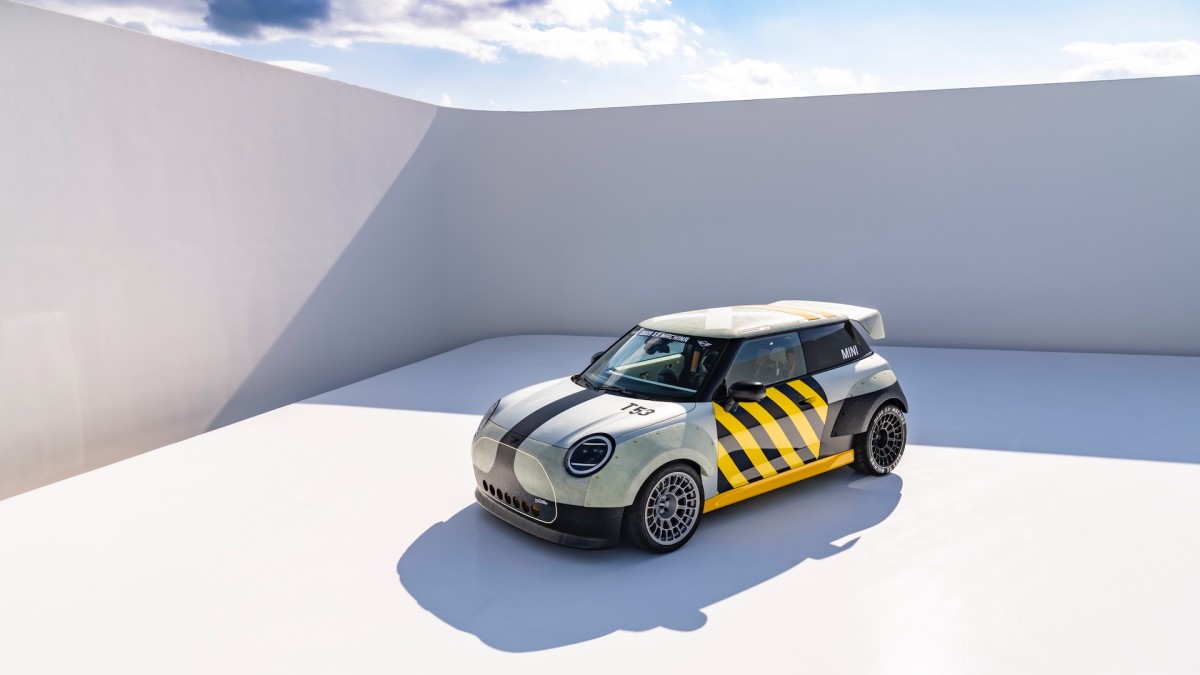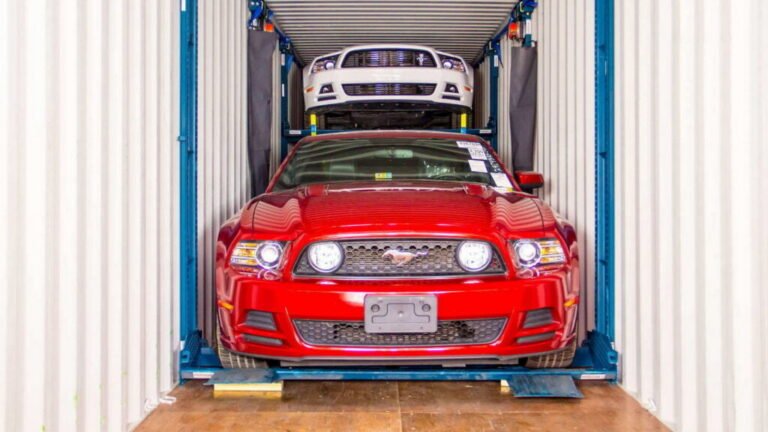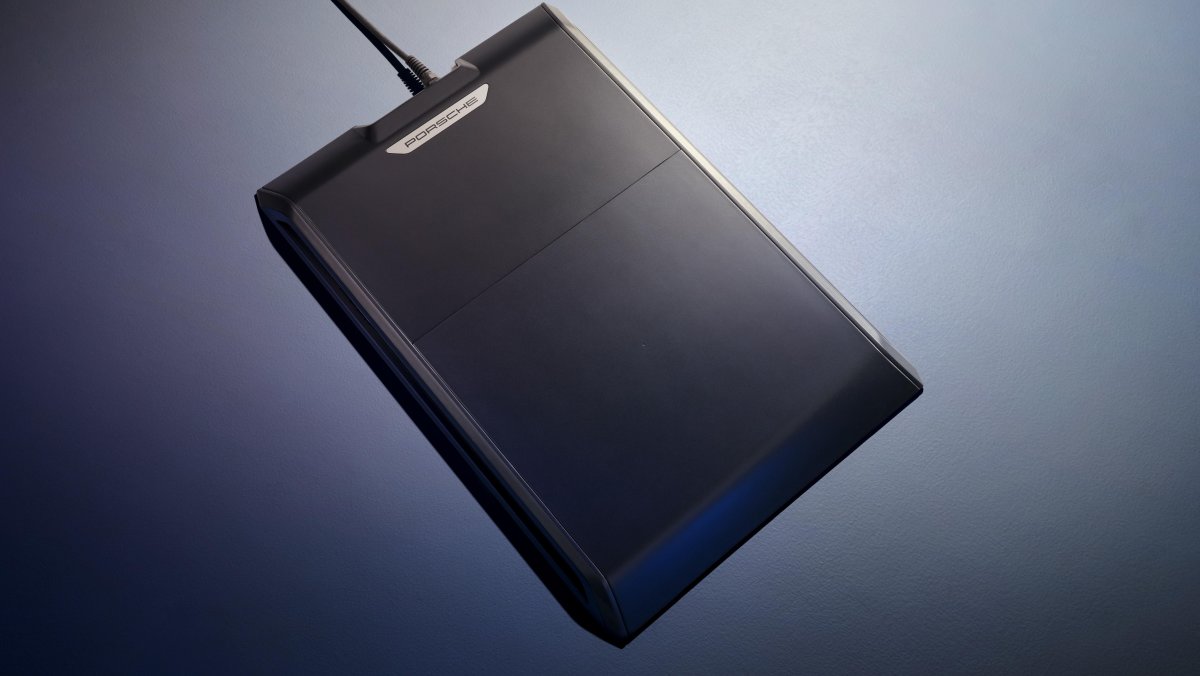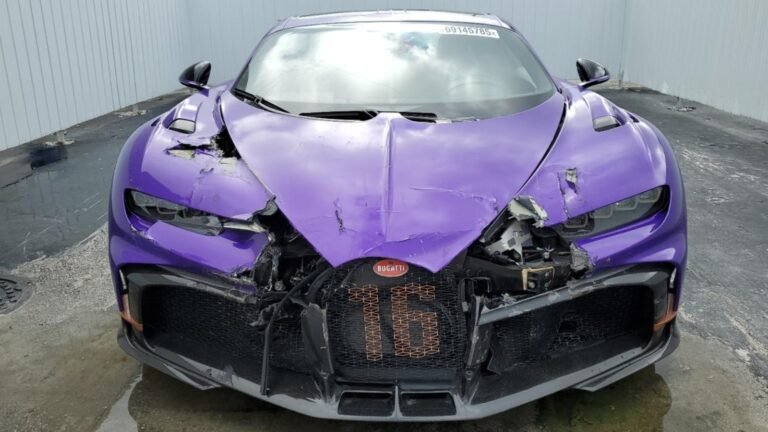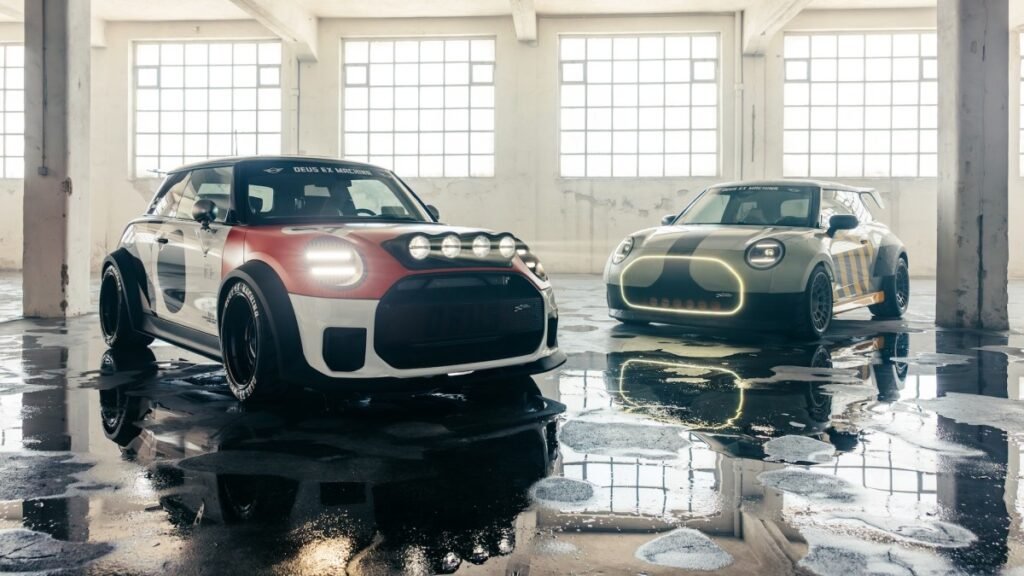
Gasoline And Electric Duo Debuts In Munich
The original Mini was a faithful daily driver that was also at home on a racetrack, a duality Mini is trying to recapture with a pair of one-off John Cooper Works (JCW) hatches customized by clothing brand Deus Ex Machina. The duo—one gasoline, one electric—will debut at the 2025 Munich Auto Show, along with a matching apparel collection.
“Mini models have always been characterized by a blend of creative design and motorsports dynamics,” Stefan Richmann, head of the Mini brand, said in a statement. “Thanks to our collaboration with Deus Ex Machina, we are taking this philosophy to a new level and setting exciting new trends for fans and motorsports enthusiasts.”
Electric Beach Cruiser
Mini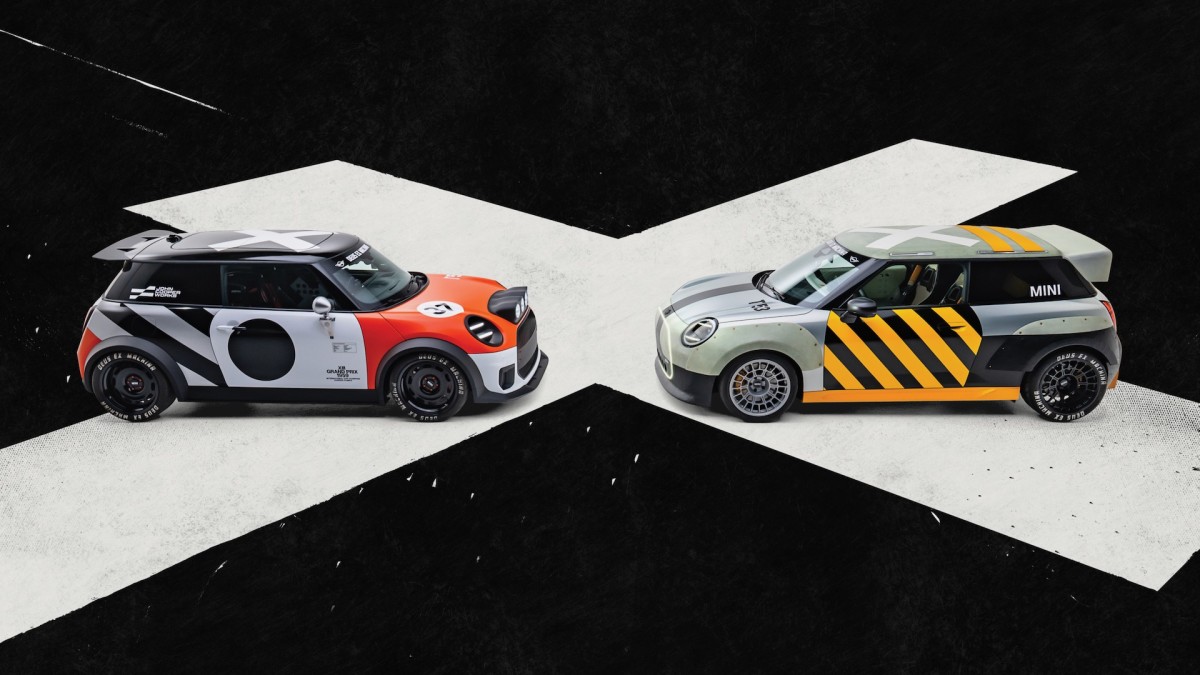
The EV half of the pair is named Skeg, and it’s inspired by surfing. Its exterior features the typical Mini electric color palette of yellow and silver, with an illuminated grille. Making use of the go-to material for surfboards, the Skeg also features translucent fiberglass body panels that also reduce the car’s curb weight by 15%, according to Mini. A fiberglass rear spoiler is shaped like a surfboard, while tension straps on the roof “reference the familiar ritual of tying down a surfboard after a session,” the automaker says.
Mini claims the interior is meant to look like a “mobile surf shop,” and it includes functional elements like fiberglass trays for wetsuits and storage shelves to fit that theme. Lightweight racing bucket seats are upholstered in the same neoprene material as wetsuits, while the dashboard is made from fiberglass to further emphasize the surfboard connection.
The Skeg is based on the two-door Mini Cooper JCW Electric hatch that isn’t currently sold in the United States (Mini said in November 2024 that it was delaying new electric models for the U.S., but didn’t say they were outright canceled). It has a 255-horsepower electric motor driving the front wheels, which will get it from 0-62 mph in 5.9 seconds, according to Mini. The top speed is electronically limited to 124 mph, while a 54.2-kilowatt-hour battery pack provides up to 230 miles of range (as measured on the European WLTP testing cycle).
Motorsport Heritage
Mini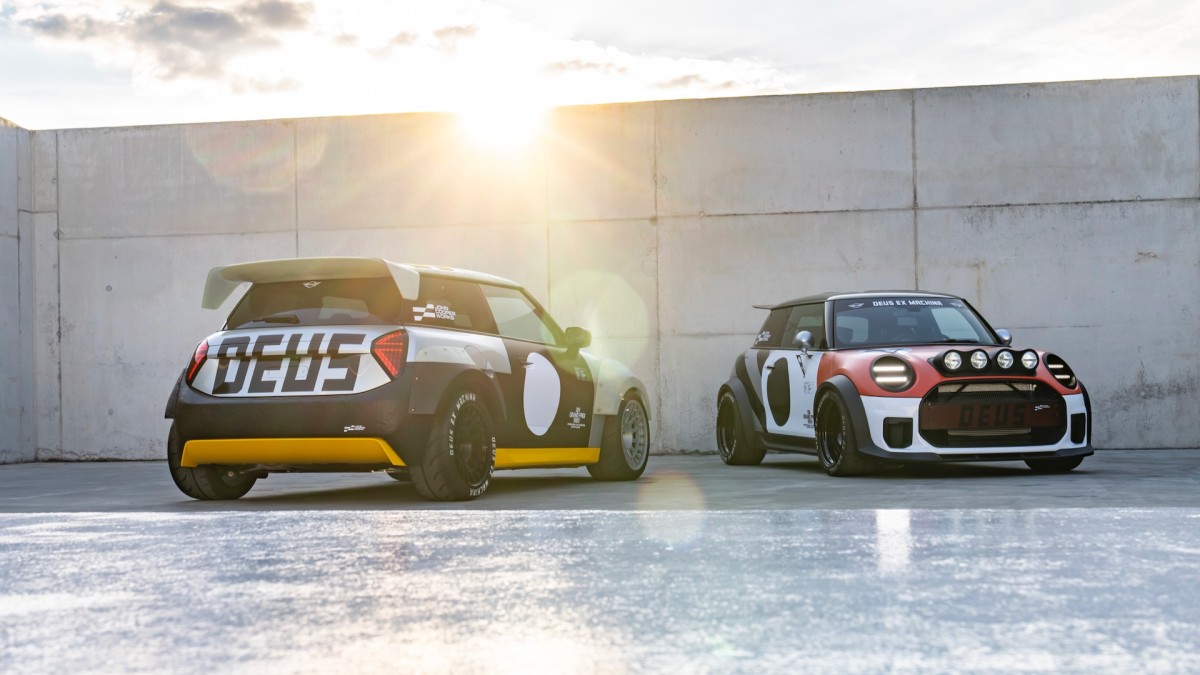
The second Deus Ex Machina collab vehicle is called, appropriately enough, the Machina. It’s a gasoline JCW hatch that leans into Mini’s racing heritage, which includes numerous rally and touring-car victories. That’s conveyed with a red, white, and black livery, widened fenders, rally-style lights, and a functional rear diffuser. The Machina also sports a large rear spoiler that Mini says is inspired by the ones on vintage Can-Am race cars.
The red, white, and black color palette is repeated inside, where five-point harnesses, bare door panels and aluminum floor plates, and a bevy of toggle switches create a true racing aesthetic. The car also has a hydraulic handbrake—another nod to Mini’s association with rallying.
The Machina is based on the gasoline MINI JCW two-door hatch that arrived in the U.S. as a 2025 model. A turbocharged 2.0-liter four-cylinder engine provides 228 hp, allowing the gasoline model to more or less match the JCW EV’s 0-62 mph time, while the top speed is limited to 155 mph. Gasoline models are also front-wheel drive, with a seven-speed dual-clutch transmission.
Mini Looks Back
Mini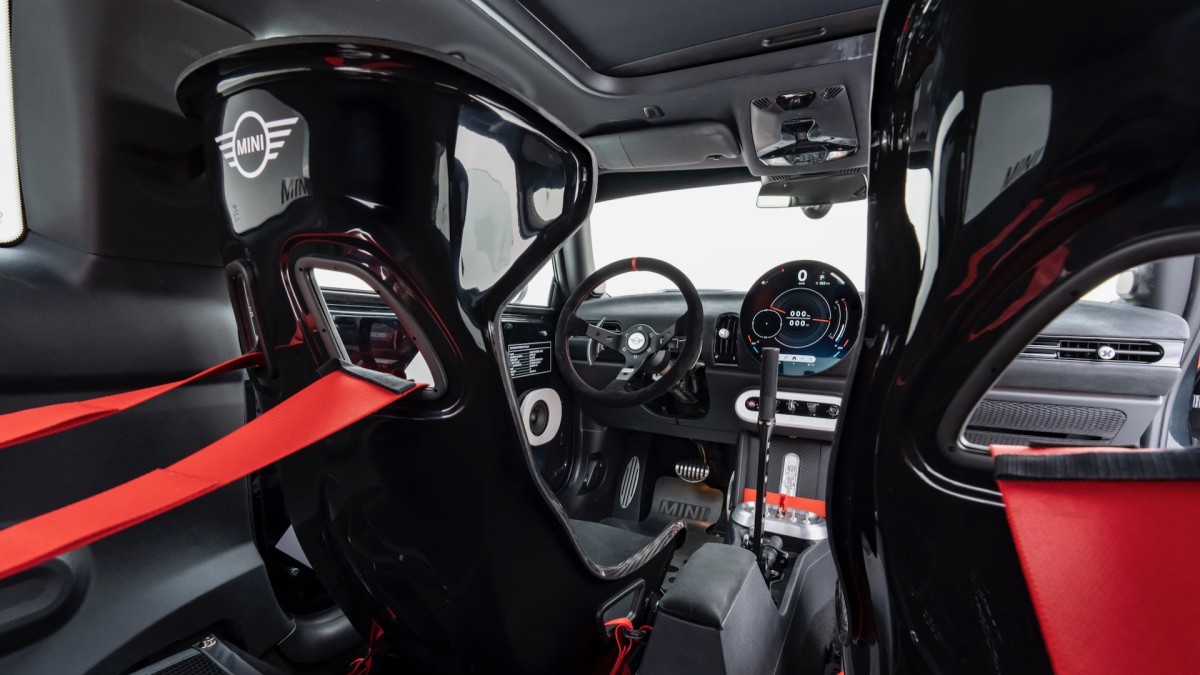
In the context of the big global debuts expected at this year’s Munich Auto Show—including Mini parent BMW’s iX3 electric SUV—one-off versions of cars that already exist seem a bit phoned-in by comparison. But Mini has spent the past few years refreshing its lineup not only with new versions of the traditional Cooper hatch, but also a redesigned Countryman SUV (with a first-ever all-electric option), and the new Aceman EV. So it’s hard to blame Mini for throttling back.
The brand is also going into full retro mode celebrating the 66th anniversary of the original Mini, which was unveiled by The British Motor Corporation on August 26, 1959. In addition to the Deus Ex Machina Munich show cars, it’s also building an ultra-limited run of six Mini 66 Collection models, equally split between the gasoline and electric JCW hatches, for Singapore that cost the equivalent of around $200,000 each.
Mini